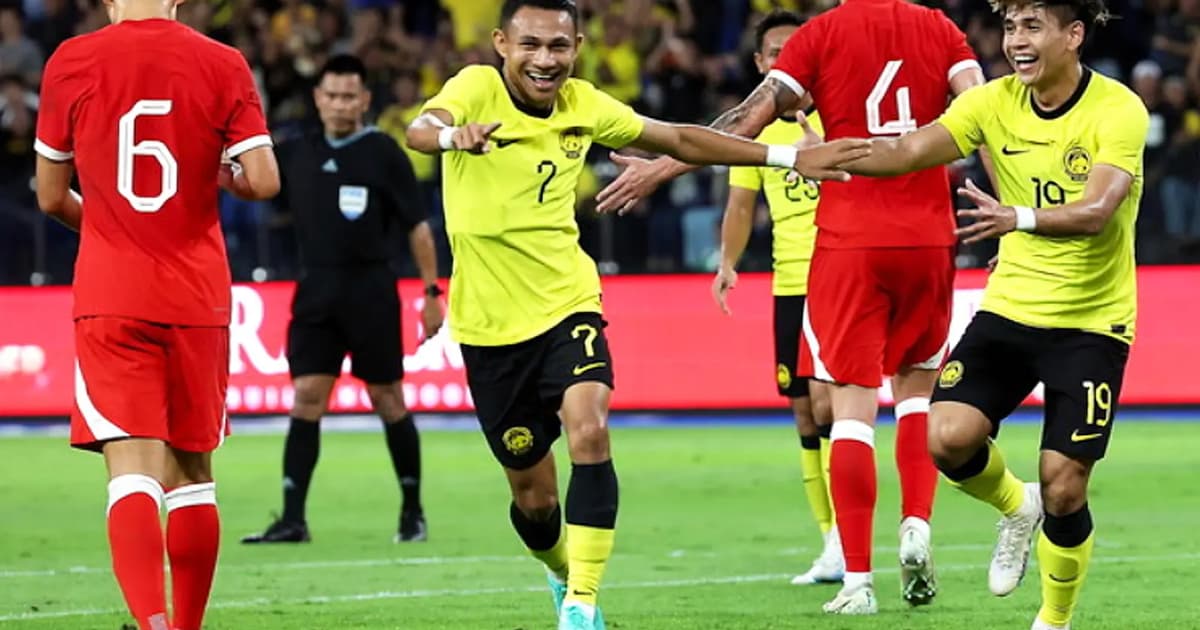
On a humid night at Bukit Jalil, the scoreboard read Malaysia 5 Laos 1. But that wasn’t the story.
The story was the 59th minute, when a slight winger, his face still marked by old burns, stood over a freekick and curled the ball into the top corner.
It was Faisal Halim’s first start for Malaysia since the acid attack in May last year that nearly ended his career.
The crowd roared. His teammates rushed to him. In that instant, a goal became something larger — a reclamation of life itself.
It wasn’t a great match. The result was expected. But in a sport often stripped of its soul, this felt different — a flash of purity in a corrupted game.
A life narrowed, a meaning widened
Thirteen months ago, Faisal was among Malaysia’s brightest lights — the hero of the 3-3 draw against South Korea at the 2024 Asian Cup.
That night, he slipped past Kim Min-jae and Jo Hyeon-woo, to score from an impossible angle.
Three months later, in a Kota Damansara mall, an unknown man splashed him with acid.
He suffered fourth-degree burns, endured four surgeries and days in intensive care.
He no longer lingers in public. His world is smaller now, quieter.
Yet within that narrow space, something essential has widened — a clearer sense of what truly matters.
Faisal’s return is not a comeback in the sporting sense. It is something rarer — a moral act.
In the tawdry world of modern football, it feels almost indecently pure.
He plays not to be adored, but to affirm. Not to be remembered, but to be alive.
The cultural anthropologist Ernest Becker wrote in “The Denial of Death” that humans seek the hero-ideal — the need to create meaning in defiance of mortality.
“To live fully,” he suggested, “is to face annihilation and still choose to act.”
Faisal plays from that truth. His every run, every feint, is a gesture of defiance against the void.
Becker’s hero-idea isn’t about trophies or applause; it’s about meaningful struggle. By that measure, Faisal is already among the greats.
Victory over despair
He would find kinship with Denmark’s Christian Eriksen, who collapsed from cardiac arrest during Euro 2020.
For five minutes, Eriksen was dead. His teammates stood arm-in-arm, shielding his body as doctors worked to restart his heart.
When Eriksen returned months later, he said: “Football is life, but it’s not that important. There’s a lot that’s more important, but football is still one of them.”
Both men stared down the void and chose to return — not because football mattered more, but because it now mattered rightly.
This, perhaps, is what makes Faisal’s story so piercing. It unfolds not in a global arena but in Malaysia, where football lurches between hope and disillusionment.
This is not a great Malaysia side. If it were, it wouldn’t still be leaning on a man rebuilt from pain.
Yet perhaps that’s precisely why his presence feels vital. He reminds us that greatness can be moral, not technical — that courage can outshine talent.
In a football culture obsessed with quick fixes and borrowed stars, he represents something older, purer: belonging.
Because beyond the touchline, the game is sick. The naturalisation scandal, the Fifa revelations about governance failures — all signs of a sport hollowed by self-interest.
The machinery grinds on, but the meaning leaks away. And then, out of the noise, comes Faisal.
A reminder that football is still capable of uncalculated beauty — that sometimes the only honest act left is to keep playing, scarred and unafraid.
On Wednesday night, he didn’t celebrate with bravado. No ripped shirt, no chest-thumping. Just a bow to the crowd, his teammates surrounding him, aware they were witnessing something sacred.
You could see it in his eyes — gratitude without sentimentality, relief without self-pity. A man who has seen the other side of existence and chosen to return.
Becker once wrote that man’s deepest need is to be free from the anxiety of death, yet it is life itself that awakens it.
Faisal lives that paradox daily. His scars do not mark defeat; they testify to survival.
His football is no longer about proving talent. It’s about inhabiting life fully, in the only way he knows.
He has become a quiet rebuke to the sport around him — where greed outpaces grace, where officials chase influence while players chase contracts.
His freekick against Laos was more than a goal; it was a sermon against cynicism.
In another country, this story would be mythologised: a documentary, a sponsorship, a slogan. In Malaysia, it will fade soon.
But those who watched that ball curve into the net saw something statistics can’t record: a man proving that dignity can survive disfigurement, that beauty can live inside brokenness.
He may never be the best player in Asia, or even the best in Malaysia. But that’s no longer the point.
Because on that heavy October night, Faisal won the only game that matters — the one against despair.
The views expressed are those of the writer and do not necessarily reflect those of FMT.






